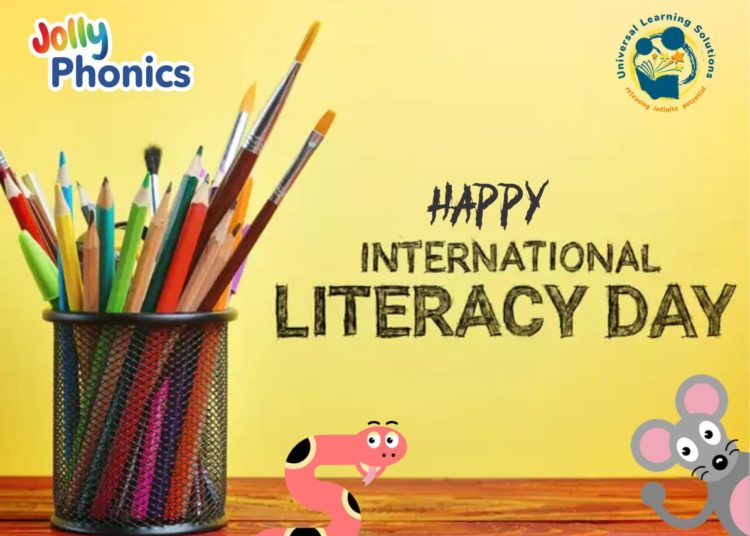As the world marks the 2022 International Literacy Day, the Universal Learning Solutions (ULS) has urged stakeholders to redouble efforts to ensure that the Universal Basic Education Commission’s mantra of “education for all, the responsibility of all” is achieved.
The 2022 International Literacy Day which will be celebrated worldwide under the theme, “Transforming Literacy Learning Spaces,” is aimed at raising awareness of the importance of literacy to all countries and cultures and the urgent need to address the challenges that may impede literacy development programmes.
It also provide an opportunity to rethink the fundamental importance of literacy learning spaces to build resilience and ensure quality, equitable, and inclusive education for all.
In a press statement signed by Sylvanus Udoenoh, the IT and Communications Officer, Universal Learning Solutions Initiative, said the importance of literacy to the development of any country or culture cannot be overemphasized, as it is the foundation for the development of skills necessary for personal and group enrichments.
He said the Federal Government of Nigeria through the mandate of the Universal Basic Education Commissions (UBEC) has continued to work assiduously in improving the literacy skills of elementary class pupils in public primary schools in Nigeria.
“For instance, in collaboration with Universal Learning Solutions, UBEC has trained over 184,000 teachers and over 6800 monitoring officials, on the Jolly Phonics methodology which aids children to read and write confidently in the English Language.
“This intervention has potentially reached over a 16.7 million public primary school pupils across Nigeria. Despite Nigerian government’s commitment to improving the literacy level of pupils, there are still many challenges.
“For example, with an annual birth rate of 37.01%, the number of children of school age is steadily increasing without corresponding increase in social amenities,” he noted.
Udoenoh further said the recent data released by UNICEF and UNESCO on the numbers of out-of-school children in Nigeria is a concern, compared with previous reports of 13.5 million out of school children in 2014, UNICEF and UNESCO in their recent global data analysis, reported over 18.5 million and about 20 million out-of-school children in Nigeria, respectively.
“This state of affairs requires urgent response from all stakeholders to double their effort to ensure that the Universal Basic Education Commission’s mantra of “education for all, the responsibility of all” is achieved.”





